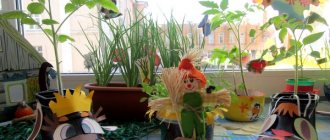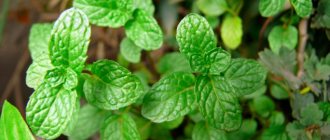What's the benefit?
Bulb
Regular yellow onions, also known as onions, are constantly in demand for preparing a variety of dishes and traditional medicine.
Juicy scales are rich in vitamins (B1, B3, C, E, PP) and minerals (calcium, phosphorus, sodium, iron). They contain essential oils, phytoncides, and fiber.
Onions are high in inulin, a natural prebiotic necessary for the growth of beneficial microflora in the large intestine.
This composition has a therapeutic effect on the child’s body:
- strengthens the immune system;
- stimulates bone tissue growth;
- inhibits the growth and reproduction of harmful microorganisms: fungi, viruses, bacteria;
- has an anti-inflammatory effect;
- normalizes digestion and appetite;
- stimulates the production of mucus in the bronchi and the secretion of digestive juices.
Green
Photo: Depositphotos.com. Author: maximkabb.
Grown in a home garden and harvested in season, green onions are superior to onions in the content of vitamins PP and B2, potassium, magnesium, iron and fiber. It contains less phytoncides and essential oils, but contains beta-carotene and almost 3 times more ascorbic acid.
Fresh green onions will bring maximum benefits. After 3 years, a child can be given 1-2 small feathers to chew after eating. This will help cleanse your teeth and mouth from germs.
Green onions are different:
- pronounced antioxidant;
- antianemic;
- anti-stress effect.
Onion juice
This juice has gained popularity in folk medicine for the treatment of cough, adenoids, sinusitis, and otitis media. For decades, it has been used to treat difficulty in nasal breathing in children with a profuse runny nose, by instilling it into the nasal passages or placing gauze turundas soaked in juice into them.
Onion juice has a multifaceted effect on the nasal mucosa: it relieves swelling and inflammation, reduces the production of mucus, and has a detrimental effect on the source of the disease - viruses and bacteria.
To reduce the irritating effect, the juice is diluted with water, honey or oil. Use only after the child reaches 2 years of age.
Attention! Currently, experts consider treatment with onion juice in childhood to be dangerous. The aggressive effect of a burning “medicine” on the mucous membranes can cause burns and aggravate the course of the disease.
Use in folk medicine
Old recipes of traditional medicine still do not lose their importance in the treatment of colds in children with dry cough. They help increase the body's resistance to infections during illness or avoid illness altogether.
For immunity
During the rise of seasonal infections, you can protect your baby from colds with mixtures of raw onions with honey or sugar.
The universal effect of onion medicine is manifested:
- in sanitizing the respiratory tract from harmful microbes and viruses;
- in replenishing the body with vitamins and minerals important for the immune system;
- in cleansing from waste and toxins.
Against cough
Raw or boiled onions, as well as their juice, are used to treat coughs. To reduce the irritating effect on the child’s mucous membranes, prepare mixtures of onion pulp with the addition of milk, honey or sugar.
By enhancing bronchial secretion, onions promote the release of large amounts of sputum. A dry, painful cough turns into a wet form and subsides after several days of use.
Onion mixtures relieve inflammation and swelling of the mucous membrane, cope with the viral or microbial cause of the disease and speed up recovery.
Treatment of cough in children with onions: recipes with sugar, honey, etc.
For a runny nose
For the treatment of runny nose in childhood, onion inhalations have a good effect. To do this, the onion is cut into several parts and left in the children's room. The healing effect “evaporates” after some time, so the onion is replaced with a fresh one every 3-4 hours.
You should not leave onions in close proximity to the baby’s location: the strong smell can cause headaches and irritability.
Cons and contraindications
Significant disadvantages of onions are their burning taste and irritating effect on the mucous membrane of the digestive tract. It should be introduced into children's diets with caution, adding small amounts to dishes.
The suggestion to try an onion on an empty stomach can result in unpleasant sensations in the baby’s stomach and indigestion.
Chewing tough onion feathers also poses difficulties for small children. In this case, the greens need to be finely chopped and added to food.
When cooked, it does not cause allergies, but loses a significant proportion of nutrients and beneficial substances. Whereas eating fresh onions (onions, green onions) can provoke an allergic reaction, albeit in rare cases.
Contraindications:
- consumption of fresh onions up to 3 years;
- allergies, bronchial asthma;
- diseases of the digestive system, liver, kidneys.
The story of one onion
One warm autumn day in one small cute house, onions lay on the white windowsill. They lay and basked in the sun, exposing first one side and then the other to the gentle rays. The sun was warm and the breeze was blowing. Everything was wonderful.
Suddenly the wind blew stronger. One of the onions that lay on the very edge fell from the windowsill and rolled along the uneven path straight to the stream that flowed nearby.
- Oh! – she exclaimed in fear. - I have guests! - Brook was delighted, picked up Onion and twirled in the dance.
Little Brook loved to dance, but everyone had no time. Everyone - beetles, dragonflies, and even butterflies - were too busy preparing for winter and did not pay attention to him at all. Therefore, he was incredibly happy when the dear guest happily agreed to dance with him. And he circled and circled and circled her in a light waltz.
- Oh! - Onion finally laughed. - How everything is spinning! - Sorry. – Stream apologized and carefully carried her out onto the soft sand, almost getting the paws of the Field Mouse running past wet. – What are you doing?! You almost drowned me! – she was indignant. - Sorry. – Brook apologized again, and his dance partner considered it better to remain silent. - I have to run further. Could you take care of Onion? “Okay,” muttered the Field Mouse, softening. - Thank you! - the polite Brook muttered and continued on its way.
And the Field Mouse looked carefully at the Onion, because she had her own understanding of the word “take care,” and she decided that it could really come in handy in winter. Not for dancing, but for dinner. And therefore, putting the unexpected find on her back, she dragged it to her pantry, where she put it in the far corner. The Field Mouse followed the wise rule “If you put it further, you will take it closer.”
In the Field Mouse's closet, Onion found her second home. True, it soon became a bit crowded here. The housewife, preparing for winter, filled the pantry with seeds and roots so that there was no room to turn around. But Lukovka didn’t complain: it’s more fun in company. Here she spent the whole winter, listening to the blizzard singing and the snow rustling somewhere up there. Listening, Onion thought about her family, which she had so carelessly lost. Will she ever see them? Or will she be left alone?
The pantry was slowly emptying. This greatly upset Lukovka. She sincerely did not understand why the seeds and roots were leaving her. Is she that bad? But, being very timid, she modestly remained silent. Then the winter songs gave way to the spring bells of awakening life. Spring came.
The Field Mouse rustled through the rooms, opening the buried manholes and letting in fresh, invigorating air into the underground dwelling.
– I’ll refresh myself and get to work! – she muttered busily, looking around the pantry one fine day.
But over the long winter, the pantry had become empty; only our old friend, Lukovka, remained. The Field Mouse took a bite, winced, and spat it out.
- Eh! Clueless! – she exclaimed in her hearts.
The onion turned out to be tasteless. The angry Field Mouse pulled her to the surface and buried her not far from the hole. So as not to embarrass me, they say!
Onion was not offended at all. She had long wanted to go upstairs, but still couldn’t bring herself to say so. Now her wish has come true by itself. One thing was upsetting: birds were singing around, a stream was babbling, the air was fragrant, but she couldn’t see anything at all! Maybe her relatives are out there somewhere? She could look!
And then she began to stretch, stretch, stretch, to look at least with one eye.
And the Field Mouse? She ran back and forth, absorbed in her worries, and did not notice anything around her. After all, she has so much to do, so much to do! But one day, returning from a neighboring field, she came across a whole crowd of insects stomping around not far from the entrance to her hole.
-What are you doing here? – she squeaked displeasedly. - We admire it! How did you decorate your home!
The Field Mouse looked where the others were looking and sat down on its hind legs. High above her hole a beautiful flower bloomed. She had never seen such flowers: they do not grow in the fields, and the Field Mouse had never been anywhere else. She immediately guessed that it had to do with that strange Onion, so tasteless and seemingly completely useless.
“She’s not so stupid...” thought the Field Mouse, pleased with how her hole now looked. And the aroma of the flower was very pleasant.
The Field Mouse decided not to let things take their course. She was very economical.
All summer the Field Mouse took care of the flower. And when autumn came, I decided to dig it up. Yes, just in case. What if it freezes? But it turned out that children appeared next to Lukovka - small onions. The mouse dug them up and took them to the pantry, where they all survived the cold winter together. And in the spring, when the Field Mouse planted them, a whole meadow of flowers bloomed around!
Onion was happy: now she had a family, there was someone to take care of her.
Source
Grandma's garden. fairy tale for preschool and junior school ages
Every year, vegetables grow in gardeners' garden beds. Grandparents, mothers and fathers in villages and dachas grow carrots and beets, potatoes, cucumbers and tomatoes, onions and lettuce, radishes and turnips, zucchini and peppers, dill and caraway seeds, pumpkin and, of course, cabbage in order to cook delicious dishes from your harvest all year until next fall. People enjoy gardening and are happy when ripe and beautiful vegetables are picked from the garden beds in the fall. But what about the vegetables themselves, what do they think about such an unusual life? How do they manage to grow from small seeds into large, juicy vegetables? In one village, my grandmother grew vegetables in her garden for many years in a row. Her adult son helped her prepare the beds for planting, dig and fertilize the soil on them. And grandma planted the seeds of carrots, beets, radishes, green salad, peas, onions, garlic, pumpkins, zucchini and other vegetables in the ground herself, choosing where it was best to plant. She sowed cucumber seeds in the brightest sunny bed, and cabbage seeds farther away near the fence. The old woman decided to plant the tomatoes and peppers in the greenhouse because they are very afraid of the cold, and the potatoes at the end of the garden. When everything was planted, the grandmother did not stop looking after her plants. After all, all plantings in the beds need to be watered and weeded. Thanks to such painstaking care, grandmother’s garden came to life, seeds began to stir in the ground, they sprouted and sent out their small sprouts from the darkness upward, closer to the bright sun. Day after day, these sprouts stretched higher and higher. But each type of vegetable was different from the other. In addition, some vegetables ripened faster, others slower. So the radishes and green onions grew very quickly and filled with strength. The green, juicy onions were already asking to be put on grandma’s table, just like the flushed, plump radishes. And the carrots and beets had just begun to form their red and burgundy bodies in the ground, although their green tails had already grown and were sticking out of the ground. But grandma didn’t tear them down. Rather, her attention was attracted by the small cucumbers that quickly ripened in the cucumber bed in the middle of summer. At first, yellow flowers bloomed on the green curly stems of the cucumbers near the wide leaves, and bees and bumblebees even came to try their juice. And then somehow very quickly the cucumber flowers turned into small shiny green cucumbers. - Oh, how beautiful and delicious you are! - the grandmother praised the cucumbers, collecting them from the garden in the hem of her apron and taking them into the house to treat her household there. And everyone loves a fragrant salad of fresh dill, onions, radishes, cucumbers and sour cream. The vegetables looked at each other with interest, watching which one would grow first. Every vegetable wanted to ripen before the other, so that it would become beautiful and tasty, then the grandmother would praise it. Time flies quickly in summer. The bed of radishes, green onions and lettuce was already empty, then it was the turn of cucumbers, then garlic and peppers, zucchini, tomatoes, carrots and beets. And when autumn came, the grandmother, with the help of her son, dug up potatoes, brought home a large yellow pumpkin that looked like a soccer ball, and only cabbage heads remained in her garden. They were sitting in the far bed near the fence. From there they could now see everything clearly, because the garden was empty. “One, two, three, four, five,” granny counted them. - No, it’s not time to cut you off yet, just ripen for now. “How is it possible, but we’re the only ones left here?” – the heads of cabbage were upset. They had already grown quite a lot, their leaves were filled with juice, but the grandmother still did not want to take them into the house. “Winter will come very soon,” the heads of cabbage began to worry. “We’ll freeze and rot here.” They looked up at the gray sky, saw birds flying away to warmer climes, and the tall birch tree that grew behind the fence soon turned yellow and began to shed its leaves. And indeed winter was approaching. The lonely heads of cabbage in grandma’s empty garden were completely sad. But no, grandma didn’t forget about her “pets.” Finally, she decided to cut them and take them into the house. So large, heavy, juicy heads of cabbage ended up not in a warm, but also not in a very cold cellar next to grandma’s harvest of potatoes, beets and carrots. Here they will feel comfortable, have someone to talk to and remember the sunny days that passed so quickly in the beds of their grandmother’s garden. 02/28/20
Source






